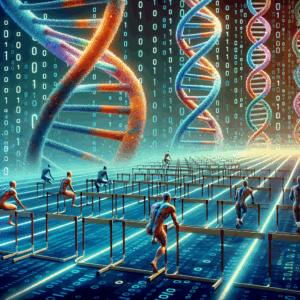Case Study:
Faster Time to Reimbursement
How to Use AI for Faster Time to Reimbursement
According to Pharmaceutic Executive, a delay in launch can cost a company an average of $15 million per drug, per day. This project was about using Artificial Intelligence to speed up the time to reimbursement on different formularies after FDA approval.
The Client Problem
Thee client analysed how many $ were left on the table with every day delay to reimbursement approval in different formularies. They wanted to see if Artificial Intelligence could impact this positively and speed up time to reimbursement thereby increasing revenue from their products.
The Solution
Using a combination of different AI techniques, to:
- identify the factors affecting time-to-reimbursement for newly launched medicines post market approval,
- provide insight into what to include in, or leave out of submissions for formulary inclusion
- find other important considerations and insights that have worked in the past to accelerate time-to-reimbursement.
The Outcome
Reimbursement was achieved much faster in the pilot of formularies using AI versus the ones not using AI. The average improvement in speed was 6 weeks. At an average of $15 m/day that can be left on the table, the amount of revenue gained from this simple increase in speed to reimbursement allowed a significant return on investment and the approach is now being rolled out to other products as well.
To achieve these kinds of results, contact Eularis today.

Latest Blogs
Check out our latest blogs

Pharma’s tough pill to swallow: the pressing need for next-gen business models and transformation using AI
Healthcare is changing at an unprecedented rate. Exciting new technologies and techniques have opened the door to a host of novel medical interventions and approaches.

The AI Race to Cure Rare Diseases: Small Markets, Big Data Solutions
In the shadow of the worldwide healthcare market is a paradox that contradicts all traditional market logic: 300 million patients around the world suffer from

Balancing Privacy and Personalisation in Modern Pharmaceutical Marketing
Personalisation has become a key and critical component of modern marketing. Greater personalisation makes for a more enjoyable and relevant customer experience, while at the
